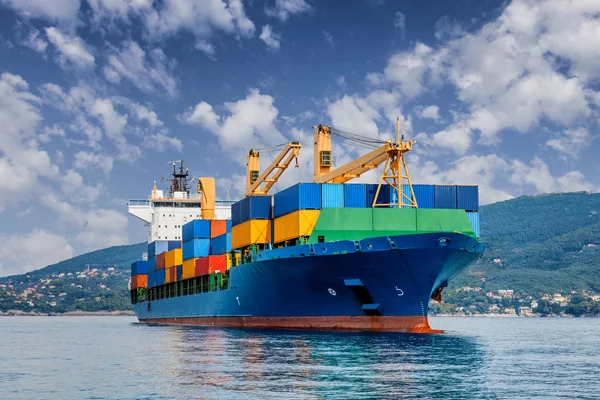
At the start if 2025, Trump enters into his second term of his presidency, and with his administration he stated that he shall tariff and tax foreign nations in response to countries that have ¨taken advantage of us for many, many years.¨ with tariffs implemented to around 57 nations that have placed high tariffs and other economic exploits that have affected American exports that range from an additional 1-50% tariff increase, with all tariffs affecting all nations with a baseline of 10% tariffs as a minimum. Experts say that due to these tariffs implemented by Trump that the United States will expect a decrease of GDP, and with inflation expected to increase by the end of 2025, along with unemployment rates expected to rise as these aggressive tariff policies. However, the tariffs are actually not based on countries economic barriers on U.S trade deficit. Trump and his administration believes that this increase tariffs will promote more U.S companies to increase production and argue that it will increase job opportunities and wages.
With these tariffs being imposed, many countries reacted to these aggressive policies, with some opting to negotiate, such as Japan, South Korea, and Vietnam, while other nations such as Canada, China, and the European Union being assertive, with retaliatory tariffs being imposed in response to Donald Trump. China, being one of the United States biggest trading partners have retaliated with large tariff percentage who have planned a 34% tariff on the United States, with both of the largest economies locked in a trading war with both sides increasing tariffs left and right. These policies will heavily impact the United States, especially aspects in agriculture and livestock, with expected decline in imports with their trade partners restricting their trade which will decrease revenue for U.S producers. These tariffs will also affect consumers, with higher prices on goods with expected increase cost of more than $1,200 yearly.
With the increase trading tensions this has started to raise concerns within the United States about the sustainability of the long term tariffs. One of the top critics, Gavin Newsom Governor of California believes these tariffs would only harm to consumers, stating that, “Tariffs are nothing more than a tax on hardworking American families — driving up the cost of groceries, cars, and essential goods.” voicing out that these will only continue to raise cost for everyday goods and amenities. Newsom is fully aware of California’s important economic role it plays internationally and wishes to continue to maintain a stable global trade relation with other nations, believing that Trump’s tariffs do not represent all Americans, reflecting to have California stray away from the tariffs entirely and act independantly economically.
 California is considered in the United States as the best place for companies, housing around 500 very successful companies, standing as the number one manufacturing and agriculture output in the nation. California alone stands as the fifth largest economy in the world, holding the strongest economy in the nation with a GDP of around $3.9 Trillion representing 14% of the total GDP of the United States. With these tariffs implemented from other nations in retaliation to Trump this majorly impacts the costs of California’s imports. Almost half of California’s imports come from Mexico, China, and Canada. These tariffs will also affect California’s small business exporters, which will result in major disruptions to cross-border supply chain, heavily impacting both farmers and ranchers.
California is considered in the United States as the best place for companies, housing around 500 very successful companies, standing as the number one manufacturing and agriculture output in the nation. California alone stands as the fifth largest economy in the world, holding the strongest economy in the nation with a GDP of around $3.9 Trillion representing 14% of the total GDP of the United States. With these tariffs implemented from other nations in retaliation to Trump this majorly impacts the costs of California’s imports. Almost half of California’s imports come from Mexico, China, and Canada. These tariffs will also affect California’s small business exporters, which will result in major disruptions to cross-border supply chain, heavily impacting both farmers and ranchers.
With these actions in the early months of Trump‘s presidency marks a unstable beginning in international relations, with these tariffs supposedly implaced for the purpose of increasing domestic industries and address national security concerns. These measures however will continue disruptions for economies, both internationally and domestically. Trump has showed signs of lowering tariffs, stepping back on his measures, however continued tensions with China with the ongoing trade war will continue to hinder the economy. California will continue to strive to maintain their place in the global economics, and affirm themselves in keeping positive and mutual relations with other countries.































